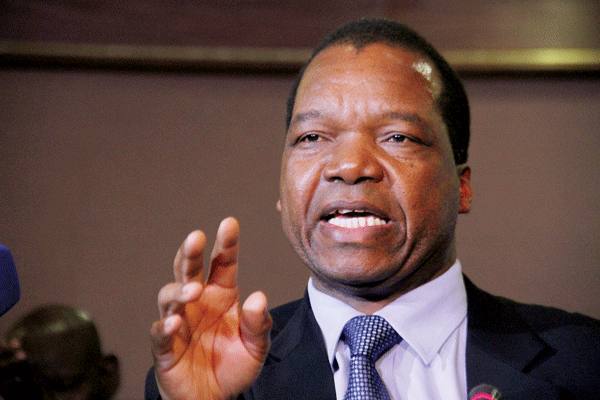
The black market exchange rate for foreign currency and cash has gone up steeply in the past few days and experts say this is due to uncertainty over the pending elections.
BY TATIRA ZWINOIRA
Premiums for the dollar and bond notes on the forex market are now fluctuating between 60% and 75% as demand for the greenback rises.
The dollar has been attracting premiums of between 60% and 65% for mobile money platforms like EcoCash and 75% for bank transfers.
The premiums, which reached nearly 90% in the last days of former president Robert Mugabe’s reign, had come down to 40% due to renewed confidence after President Emmerson Mnangagwa assumed the reins after a military-coup in November 2017.
Financial expert Persistence Gwanyanya told Standardbusiness last week that the big users in foreign currency in the country were causing these fluctuations taking advantage of the uncertainty around the elections.
“So, these are the people that give direction to the parallel market and depending on the daily circumstances or circumstances of the moment, we could see the exchange rate fluctuate.
“But, the trend has basically been a rise in the rate,” he said.
- Chamisa under fire over US$120K donation
- Mavhunga puts DeMbare into Chibuku quarterfinals
- Pension funds bet on Cabora Bassa oilfields
- Councils defy govt fire tender directive
Keep Reading
“People naturally take advantage of the election and because there are a few powerful people moving foreign currency, they are then able to capitalise.
“They capitalise on every small little thing political that happens to manipulate or influence the exchange rate. So, this is basically what has been happening.”
Gwanyanya said a single big mover could have as many as 100 dealers on the ground selling and buying cash at a premium.
Cash barons have agents that employ dealers to buy and sell cash at a premium.
In what is becoming a lucrative speculative trend on the parallel market, anybody with access to cash is now selling at a premium.
The trend obtaining on the black market is particularly reflective of the cash shortage prevalent in the economy today.
So dire is the cash crisis the central bank’s economic weekly review for the week ending June 15 reported that automated teller machines had this year disbursed a total $1 797 674 compared to $7,52 million around the same time in 2017.
This shows that cash has not been accessible for 30% or about 2,4 million of the banked adult population in the country.
Monetary authorities are pushing for the use of plastic money as a solution to the cash shortages.
Analysts said banks could be deliberately holding onto cash, be it bond notes or United States dollars.
Economist Ashok Chakravarti said the election period had created a lot of uncertainty.
“I think it has a lot to do with the elections because obviously the elections create uncertainty in markets and people are not very sure what the government’s policies are going to be going forward.
“So, obviously, there will be some speculative demand, which is adding to the normal demand for foreign exchange. But, I think it is good to see that it has at least been stable at that 60 to 75% level,” he said.
“It seems to support what some policymakers are saying, that we should have a local currency and that if such a currency is introduced in a prudent manner, we might even have a reasonable exchange rate between that local currency and the United States dollar after elections.”
Chakravarti said as long as the bond notes were at par with the US dollar, money would continue to disappear.
“They are trading at a discount in our neighbouring countries so all the bond notes go to our neighbouring countries in South Africa, Zambia etc. All that money could have been circulating on our informal market and in the rural areas,” Chakravarti said.
The new administration has constantly promised to address the crisis. Vice-President Constantino Chiwenga said last week government was making efforts to address the liquidity challenges and bring bank queues to an end.
Reserve Bank of Zimbabwe governor John Mangudya recently said the high demand for foreign currency was a sign of an expanding economy.
A number of economists have suggested the use of the South African rand to deal with the cash challenges.
MDC Alliance said it would adopt the South African rand if its candidate Nelson Chamisa lands the presidency on July 30.
Analysts said the first test of the new government’s commitment to reform would come at elections, “in the event that those pass credibly and peacefully (which is our core view), inflows will likely increase in the second half of the year”.
“We believe that Zimbabwe is likely to see higher remittance inflows in 2018 relative to 2017 owing to the appreciation of the South African rand against the US dollar,” research firm BMI Research said in a note.
“Given that the bulk of Zimbabwe’s diaspora, estimated to number as many as three million people, live and work in South Africa, a stronger rand means that remittances will end up being converted to a larger quantity of US dollars, the main transaction currency in Zimbabwe.”











